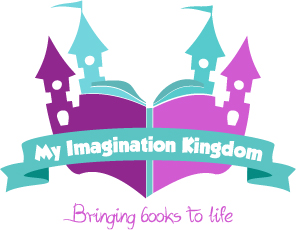Literary Appreciation

Does your child hate reading?
Is it difficult to make him or her pick up a book voluntarily during their free time?
Do they prefer to spend their time watching YouTube or playing with mobile devices?
Parenting is a really tough job and we know all you want is the best for your child. And that is why we are starting a series of clinics and one-on-one consultation sessions with you and your child to help them nurture a love for reading.
In 2002, OECD research reported that reading enjoyment is more important for children’s educational success than their family’s socio-economic status. Not only that, children who love reading had:
- higher scores on their cognitive and social/attitudinal competencies
- consistently higher scores in mathematics, reading, logical problem-solving and attitude
- higher average scores for engagement in school, positive communication and relations with family, and positive friendships
- showed less risky behaviour
- higher levels of motivation towards school
On the other hand, those who did not enjoy reading were more likely to be:
- heavier television watchers over time
- exposed to bullying experiences
- seen by teachers as having difficult classroom behaviour at age 12
- less likely to complete their homework
- less likely to be enthusiastic about going to school.
Reading also has long-term health benefits. It has been reported that reading is 300% better at reducing stress than going for a walk and 700% more effective than video games.

In an interview with The Guardian, award-winning English author said this:
"I was in China in 2007, at the first party-approved science fiction and fantasy convention in Chinese history. And at one point I took a top official aside and asked him Why? SF had been disapproved of for a long time. What had changed?
It’s simple, he told me. The Chinese were brilliant at making things if other people brought them the plans. But they did not innovate and they did not invent. They did not imagine. So they sent a delegation to the US, to Apple, to Microsoft, to Google, and they asked the people there who were inventing the future about themselves. And they found that all of them had read science fiction when they were boys or girls."
Reading helps to fuel imagination and encourages children to build a future for themselves that does not exist today.
So what are the factors that affect whether a child enjoys reading for fun?

At My Imagination Kingdom, we use a 3-tiered approach to break down a child's behaviour when it comes to reading.
1. The Individual (Child): Every baby is born a blank slate. But as we grow older, we pick up different preferences, tastes and hobbies due to specific emotions and associations that our brain has learnt in conjunction with these preferences, tastes and hobbies. Someone who has grown up to enjoy reading for fun has had a childhood where strong, positive emotions have been learnt in association with reading. In our clinics and consultation sessions, we will share the research and science behind why this is so, and how you can help your child learn to enjoy reading.
2. The Role Model (Parents): Parents' behaviours have an amazingly large impact on their children. As a start, developmental psychologists have always known that children learn by imitating adults. In fact, in a study of Australian preschoolers and Kalahari Bushman children, researchers found that a particular kind of imitation — over-imitation, in which a child copies everything an adult shows them, not just the steps that lead to some outcome — appears to be a universal human activity. If imitation is the primary way in which children learn, think about how a child might learn the behaviour of reading or not learn this behaviour just by observing what their parents are doing. Do their parents relax at the end of a long day at work by playing with their smartphone devices or are they relaxing by reading a book?
3. The Environment: In a famous study known as the "Good Samaritan Study" conducted in the 1970s, Princeton social psychologists John Darley and Dan Batson studied how students of the Princeton Theological Seminary conducted themselves when asked to deliver a sermon on the parable of the Good Samaritan.

The researchers were curious about whether time pressure would affect the seminary students’ helpful nature. After all, the students were being trained to become ordained priests; they are presumably inclined to help others.
What they found was illuminating in demonstrating how our environment can affect our behaviours and actions. The study found that only 10% of students in the high hurry condition (one of the experimental conditions) stopped to help a stranger in distress. On the other hand, 63% of students who were not in a hurry stopped to help the stranger. Remember, all these students were being trained to become priests. And yet, they exhibited vastly different responses to the stimuli they were exposed to.
This same logic applies to our children and whether they pick up reading. What kind of home environment do they live in? Are their spaces filled with toys and screens and other items? Or are they surrounded by books everywhere they go?
- To find out more about the 3-tiered framework and how you can help your child learn to enjoy reading for pleasure, sign up for our small-sized clinics which are targeted at parents
- If you're interested in a one-on-one consultation for yourself and your child, sign up here
- And if you have attended our clinics as well as our one-on-one consultation and would like to have your child take part in a weekly programme to help nurture a love for reading, sign up here

